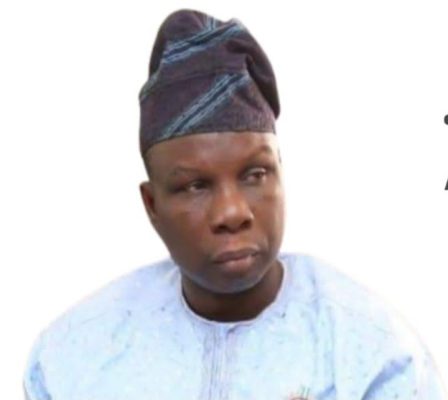Facebook, a popular social media networking site in Nigeria, now known as Meta, on July 1st, announced that it would start paying money to skit makers, content creators and social media influencers with more than 5,000 followers.

Mark Zukerberg is the owner of Facebook, which he renamed Meta, after he bought the company in 2021. Instagram and WhatsApp, two other social media networking sites are also owned by him.
Zukerberg makes huge amount of money from the three media platforms through advertisements, and he gives back part of the money to those with large followers who create content that get people entertained on those platforms, but to earn the money, the content must be original and it must appeal to a wide audience.
Some Nigerians, especially the youths, are making huge sums of money creating contents on several social media platforms. But since the July 1st monetization of content on Facebook, the desperation to get a chunk of the Megabox is now driving many desperate skit makers and content creators to do the unthinkable.
Just last week, a short video posted on Facebook went viral after a woman, later identified as Favour Igiebor, tore what looked like the International Passport of her husband upon their return to Nigeria from Italy. Many Nigerians were shocked that a woman could go to such an extent to embarrass her husband publicly and they called for her arrest. Many rightly believed that the passport she tore was a government property.
Following so much noise from many angry Nigerians, the Comptroller General of Nigeria Immigration Service, Mrs. Kemi Nandap, was forced to issue a statement, assuring members of the public that the matter would be investigated. According to the statement: “The individual has been identified and invited for further investigation. If the allegations are substantiated, her actions would have constituted a breach of Section 10(b) of the Immigration Act 2015 (as amended), with corresponding penalties outlined under Section 10(h) of the same Act.”
Within 24 hours, Igiebor was arrested and flown to Abuja. But the husband came out immediately the wife was picked up to inform Nigerians that the Airport drama was a skit and that his passport was intact. The whole idea was conceived by the family as a skit through which they believed that they would trend and thereby, increase their followership on Facebook and earn money from Zukerberg.
Skit-making, content creation, and playing pranks on others to make people laugh or gain viewership have become the new oil-well for Nigerian youths where they make as much as millions of Naira every month. Even before Facebook approved the monitisation policy for Nigerian and Ghanaian skit makers in July, other social platforms such as Tiktok, Instagram and YouTube have been money spinners for most of our youths who are into the trade.
In its report titled: ‘Skit Economy: An Assessment of Digital Content Creators in Nigeria’, the African Polling Institute (API) submitted that skits were useful in creating awareness about social trends. While 83 per cent of respondents identified the role of skits in correcting societal ills, 90 per cent acknowledged the potential of skits for employment generation in Nigeria.
One of the most popular skit makers in the country, Emmanuel Chukwuemeka Ejekiru, popularly known as Mr. Sabinus, admitted that making money on social media had gone beyond Instagram and Facebook platforms and has become a money spinner for him and several others. “Right now, I can boldly say TikTok is pulling it much more than Instagram. We have a YouTube audience, too. Instagram is just the main platform, because you get to meet the audience there, but there’s a massive audience on Facebook.” Little wonder, it’s bursting at the seams at the moment. Creating content, he added, has become so lucrative on YouTube that content creators now earn roughly N15 to N20 million every month.
Sabinus’ revelation seems to be a timely answer to those investigating the opulent lifestyles of Nigerian skit comedians. Painting a broader picture, he said: “Facebook is the only one that is even monetised, not even Instagram. And YouTube is monetised. So, if Instagram is no longer available, I still have Facebook, which will pay me, and YouTube, which will also pay me. So, content creation is right now for me, a career. It’s helped so many people.”
First gaining prominence in 2015, skit-makers have continued to boom, with unprecedented collaboration between actors, comedians and those in the entertainment industry.
With the creative economy increasingly contributing to the Gross Domestic Product of the country, as multiple reports and statistics attest, the Nigerian skit-making industry is not only flourishing, but redefining the landscape of entertainment.
The COVID-19 pandemic served as a catalyst for the exponential growth and attention garnered by Nigerian skit-makers as the total lockdown necessitated innovative forms of entertainment. Skit-makers seized the opportunity, devising new ways to captivate audiences through collaborations that featured prominent actors and musicians.
According to Dataleum, a global talent accelerator, skit-making ranks as the third-largest entertainment industry in Nigeria, with a net worth surpassing ₦50 billion ($31.2 million). The industry now doubles as a source of amusement and a substantial source of employment. As noted by the Africa Polling Institute (API); 90% of Nigerians polled viewed comedy skits as a viable means of employment, highlighting the industry’s socio-economic impact.
Shortly before he left office, former Nigerian president, Muhammadu Buhari, said Nigeria’s creative industry was positioned as the second largest employer with a potential to produce 2.7 million new jobs by 2025. He said: “After agricultural, the creative sector is the second largest employer of labour in Nigeria today.”
Worldwide, the creative economy is estimated to be worth $985 billion with no signs of slowing down. G20 Insights has predicted that the creative economy could account for 10% of global GDP by 2030, and Deloitte hinted that up to 40 per cent growth in creative sectors would be witnessed by 2030.
In a bid to earn big, many upcoming skit makers in Nigeria are now creating skits, content and pranks that are dangerous to themselves and to fellow Nigerians. In the process of making a short skit, a young skit maker known as Churchill lost his life while filming a stunt as part of a video content for his fans in January. Churchill, who was still a student of Nasarawa State University, ended up slamming his head on the ground, which eventually led to his death.
If Igiebor is eventually taught a lesson by the Immigration, whether what she tore was the original passport of her husband or not, other skit makers would develop brain on the kind of skits and contents they can post on social media.
Barely a week after Churchill’s accident, two young ladies also reportedly drowned while filming a skit in Delta State. The unfortunate incident occurred on Saturday, January 20th, when the two girls decided to visit a river in Second Amekpa, Ekiugbo-Ughelli community in Ughelli North Local Government Area of the state to perform and record a stunt which they intended to upload on social media. The last word that was heard from one of the ladies before gesturing to her friend to join her in the river was “My daughter, come, come, come, let me initiate you. Mami water, I say come.” Her friend later joined her in the water and that was the last time they were seen as they were swept away by the water’s current. The footage was recorded and later posted on Instagram by one of their friends known as Goodluck. The corpse of the two ladies were recovered few days later.
Skit-makers and pranksters, if they are not endangering their own life for show, are putting the life of their fellow citizens at great risk. In June last year, a popular Ibadan-based skit maker, Abdullahi Adisa, popularly known as Trinity Guy, released a skit video in which he pranked unsuspecting people. In one of the videos, Adisa could be seen begging an unseen person not to kill him as passersby approached. As the passersby got close enough, the prankster’s pleas were followed by sounds of gunshots, which made him fall to the ground, playing dead. This frightened some passersby and forced them to flee in different directions, with some even tripping and falling on one another. In another scene of the same video, Adisa was seen running to a woman in an uncompleted building to take shelter, claiming a group of bad people were after his life. Another scene showed where he stood before a stranger and asked for his manhood, the confused man ran for his dear life before he started shouting for help. Adisa was seen continuously harassing the man by running after him and threatening to shoot him. He met his waterloo when he recorded an inappropriate video with a young girl which led to him being arrested and detained by the police.
Another 19-year-old Lagos-based comedian, Eyinatayo Iluyomade was arrested and charged to court for playing a prank on innocent Nigerians. The skit maker had dropped a threat note of his intention to rob a bank in Ondo town, on August 12, 2022. In the note, he wrote, ‘We are coming to rob, and there’s nothing your police can do’. That was a mad move, considering the insecurity situation in Nigeria and Ondo State as at that time. On the day he and his ‘gang’ threatened to strike in Ondo, not a single Bank opened for business. Prank or no prank, he was arrested by the police and charged to court.
In a bid to make money through skit-making, many of those in the trade have thrown caution to the winds all in an effort to get a chunk of Zukerberg’s money. From the sublime to the ridiculous, many of the skit makers now openly reveal their private parts, daring to be bold and reckless in their actions to qualify for a piece of the Zukerberg’s pie. Consequently, “challenges” began popping up on TikTok. These were wild stunts performed by users and when these videos went viral, they prompted other users to follow suit. Many have died while doing those stunts.
One of the earliest stunt challenges to appear on the app was known as the ‘milk crate challenge’, which involved people stacking crates as high as they could and trying to climb on them without falling. Of course many fell, losing limbs in the process.
The Police have on several occasions warned skit-makers to be mindful of the kind of contents that they post on social media. Muyiwa Adejobi, the Force Spokesperson, said that the Force would continue to encourage positive creativity amongst the youthful populace but urged content creators to use social media responsibly and in a positive manner.
That should be one of the major challenges facing Michael Nwabufo, also known as Mike Premium, who was recently elected President of The Practitioners of Content Creation, Skit Making, and Influencers’ Guild Of Nigeria.
The Association should, as a matter of urgency, get most of the skit makers and content creators on board and organise seminars and peer-review their activities so that dangerous skits and contents won’t find their way to the social media space.
If they fail to review the activities of their members, the National Film and Video Censures Board may have to be more proactive in ensuring that skits and contents that could promote violence, rubbish the image of the country, or pose a danger to people never find their way to our social media space. If Igiebor is eventually taught a lesson by the Immigration, whether what she tore was the original passport of her husband or not, other skit makers would develop brain on the kind of skits and contents they can post on social media.
Indeed, the desperation for Zukerberg’s money is real.
See you next week.










